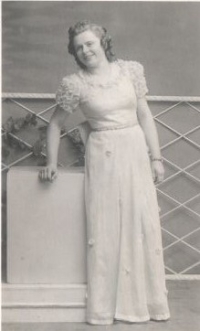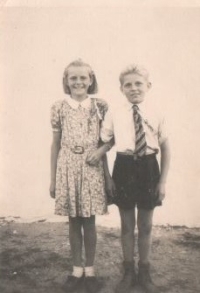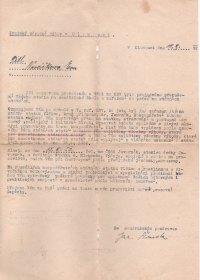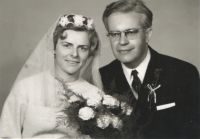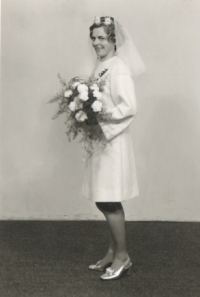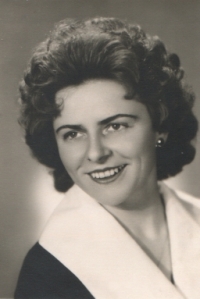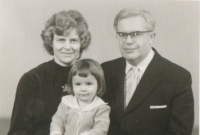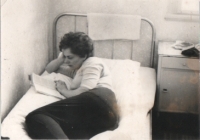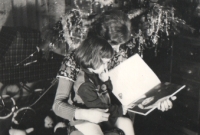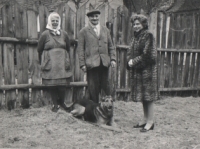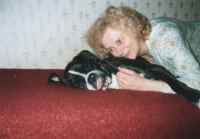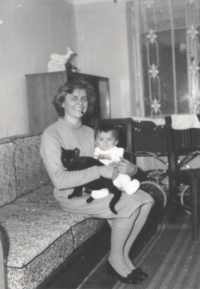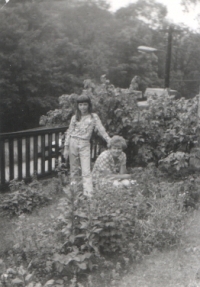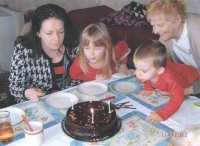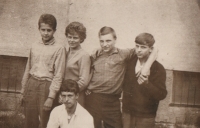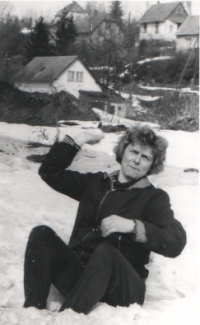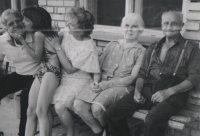We were hoping it would collapse, that it would be over

Download image
Eva Herzánová, née Nováčková, was born on 12 April 1933. Her parents owned a farm in the village of Heřmanice u Rouchovan in the Třebíč region. There she also went to the municipal school and lived through the war years. She remembers the fear of air raids and the crossing of the front at the very end of the war, when German and Soviet soldiers took turns in their house. After the war, she entered the girls’ agricultural school in Velké Meziříčí, where she learned cooking and sewing. Later she passed the entrance exams to the higher agricultural school in Olomouc. However, for personnel reasons she had to leave the school in 1952 shortly before graduation. Her family was considered kulaks during the peak of agricultural collectivization. Instead of the assigned position at a state farm in the remote village of Vlčice in the Jeseník region, Eva eventually started working at a tractor station in Vikýřovice near Šumperk. Later, she became an educator. There, she was able to further her education – she completed a food industry school via distance learning and later studied at the Pedagogical Institute in Ostrava. After getting married, she moved to Třebíč, where she worked as a teacher at an agricultural school. She recalls the oppressive atmosphere at the school during the period of normalization. In the late 1970s and early 1980s, Eva’s hometown of Heřmanice was forcibly evacuated and razed to the ground due to the construction of the Dukovany nuclear power plant. At the time, her family received only symbolic compensation for the sold farm and land. As of 2021, Eva Herzánová lived in Třebíč.
